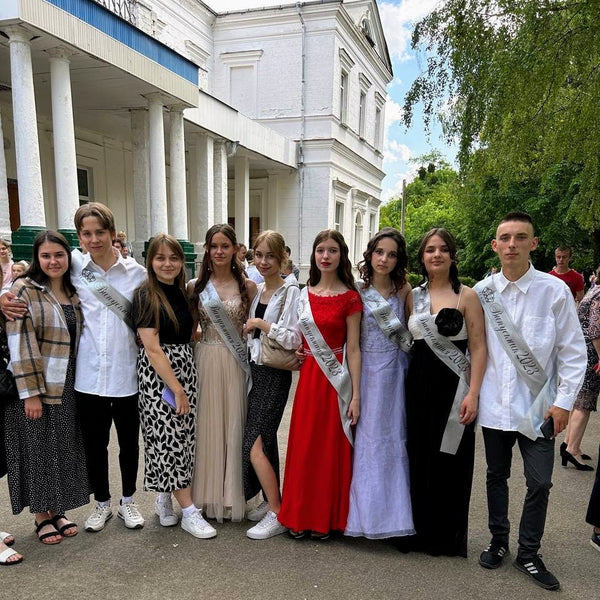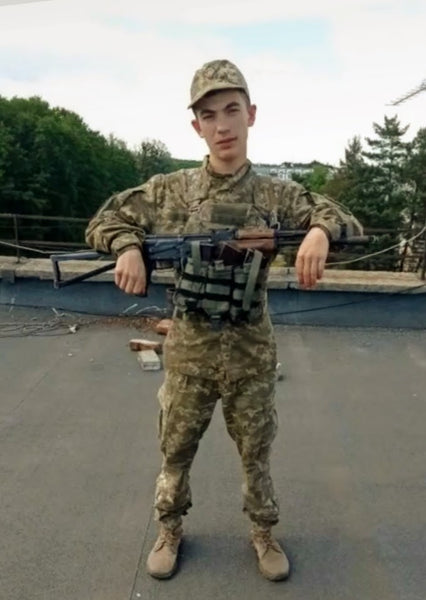There’s no place like home… especially for an Orphan

By: Zoë Knight
Kompas Park: a magical land of strange costumes, endless mosquito bites, injury-inducing games that you know you shouldn’t play but you do anyway, (speaking for a friend...) kids screaming at you for the 100th time to jump on the trampoline, and you have to explain “I’m too old now” in broken Ukrainian, scattered belongings, sunshiny days, tearful goodbyes, and where time moves much faster than normal. There is truly no place like it.

When I was a child, my favorite movie was The Wizard of Oz. I’m not going to spend time summarizing the movie; instead I’m going to assume anyone who is reading this has seen it. At the end of the film, Dorothy recites the famous words that still loom large today: “there’s no place like home.”
The older I get, the harder it is for me to define what home really means. Is home my parent’s house where I grew up? Is my college my home? The place I spent 4 of my most transformative years? Is my current apartment now home, living away from my family? Is home a person or group of people? Is home Kompas Park, which has served as a place of consistency to me for many years? It seems the older I get, and the more life experience I have, I realize the increased difficulty in answering that question.

At Kompas Park this past summer, I was excited to learn that I would lead a team of girls who have already graduated from Shpola orphanage. I have known some of these girls for 3-4 years while some I just met this year. Like me, these girls have a confused concept of home. But unlike me, their definition of home is much more thwarted. Home for them is completely shattered. Many of them were taken from their families and homes as small children. Some may have realized why, and others were naïve to their own reality. For them, home is not a safe place. Home is a place to watch their mother get beat up by their father, then the boyfriend, then the next boyfriend, and so on. Home is a place of violence, drunkenness, and horrors that are hard for many of us to fathom. Home is a place of neglect.
At some point, they are brought to an orphanage, their new “home”, where they are surrounded by countless children with similar stories. The sheer abundance of children makes it impossible for caretakers to give a sufficient amount of love to each child. Kids learn to live by the mantra, “every man for himself.” They respond to someone hurting their feelings with violence, physically or emotionally. They learn that there is no one they can truly trust.
As previously mentioned, I’ve known some girls from my team for almost 4 years. Many of them graduated 3 years ago. One of Hope Now’s projects is to assist orphan graduates after they leave the orphanage by providing them with a safe, Christian home. I’ve seen how God has nurtured and protected this project through the lives of these girls. Many of them currently live together in an apartment in Cherkasy, are receiving an education, attend church together, and are actually going back to serve at the orphanage. When I pause to think about this fact, I can’t help but be in total awe. God has used countless people to bring together the means necessary to assist girls like the ones in my Kompas Park team. I thank God that He has allowed me to enter into their lives and in His work in Ukraine for the last 12 years.

As I get older and older, I know that my definition of “home” will only become blurrier. There will be new places to live, new people in my life, and new stories to tell. Home will never be one place. I can bet it’s the same for my girls and all the other orphans. While I hope these girls have a new, redeemed concept of home sometime soon, I also believe that we will never be fully at home while living on this earth. Many of these girls have professed faith in Christ and some have even been baptized since leaving the orphanage. Praise God, who is our ultimate source of comfort, peace, strength and salvation. He is our home. One day, we will be with Him for eternity in our heavenly home.
Of course, this is not a new idea. C.S. Lewis writes, “Our Father refreshes us on the journey with some pleasant inns but will not encourage us to mistake them for home.” Lewis touches on something incredibly profound. It’s not that God wants us to have a horrible home life, but rather that breaks His heart. What He doesn’t want, I believe, is to grow too attached to our earthly homes, possessions, and people we place before Him. I imagine for those who have wonderful, safe homes actually find this harder than those who do not. God blesses us with gifts here on earth, but He reminds us through transition and change that we are never fully satisfied here.

I rejoice because God gives us glimpses of our eternal home here on earth. During Kompas Park Youth Camp, I lead the worship band master class. All week three of us leaders taught our kids songs to play each night for worship time. On the fourth night of camp, we were able to have a worship night with eight songs! This was definitely a highlight for me. Hearing the voices of 64 children and 25 leaders all praising the same God, with one voice and 2 different languages, points me to a future glory that I cannot comprehend. God wants the hearts of people, every tribe, tongue and nation singing, “all blessing and honor to Him who sits on the throne.” I pray that these children all find their true home, the salvation of their souls. Click here to hear a little worship from camp this year.
I am reminded of this idea in Scripture. The writer of Hebrews says, “For this world is not our permanent home; we are looking forward to a home yet to come” (13:14).
Please pray that those who struggle to find rest in their homes would be protected, but ultimately, that they would realize their need of Christ, who is our home.
Zoë has been serving at Kompas Park since 2007 and she invites you to serve with her in 2020! Fill out your Application today – we still have a few spots for volunteers this summer!
Also in News

Happy Independence Day, Ukraine!

Last School Bell in Ukraine has Rung

Memorial Day is Everyday in Ukraine
Meanwhile, just in the past year, Ukraine has suffered 124,500-131,000 total casualties, including 15,500-17,500 killed in action and 109,000-113,500 wounded in action, according to the document entitled "Russia/Ukraine - Assessed Combat Sustainability and Attrition." And not just on Monday, but on every day in Ukraine, people just like us remember and honor the loved ones who have died these past 457 days defending their country. With your help, Hope Now does whatever we can to help protect Ukrainian lives – civilians and soldiers alike.


